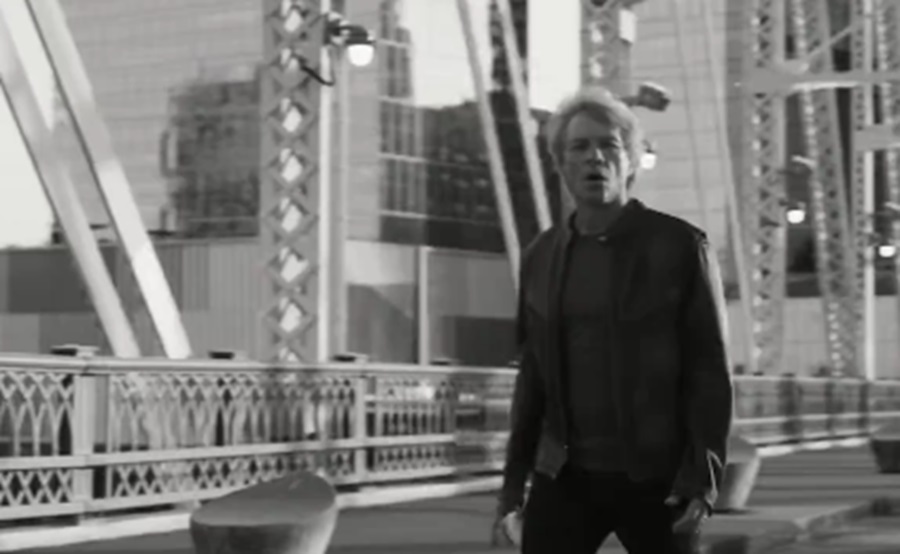Jon Bon Jovi has publicly endorsed Vice President Kamala Harris in a recent social media post, utilizing this endorsement as a promotional tool for his new song, “The People’s House.” Released back in June with little reception, the track is meant to celebrate the essence of America as a collective home, from coast to coast. In his post on X (formerly Twitter), Bon Jovi emphasized his belief in the concept of unity, stating, “the power of we, not of me.” He announced that he would be supporting not only Harris but also Minnesota Governor Tim Walz on Election Day. This announcement appears to coincide with his campaign to garner attention for the song, which, despite being released several months prior, went largely unnoticed.
The lyrics of “The People’s House” describe a landscape of shared American experiences and aspirations. Bon Jovi reflects on themes of privilege and responsibility, noting that while he was not born into wealth, he acknowledges his fortunate position. The song captures the sentiment of resilience and collective effort, declaring, “We are buildin’ this house of love.” The message of unity and togetherness is a prominent refrain throughout the lyrics, echoing Bon Jovi’s call for belief in change and a vision for an inclusive future. The phrase “This is the people’s house” serves as a reminder of the shared ownership of the nation and the collective responsibility to shape it.
Musically, Bon Jovi’s track aligns with his history of producing anthemic rock songs, though the lack of traction upon its release raises questions about its impact and relevance. Despite being released amidst other significant political endorsements, including one from fellow musician Bruce Springsteen, “The People’s House” struggled to capture public interest. This could reflect a broader trend of established artists vying for relevance in an ever-evolving musical landscape, where both the artist and the art struggle to connect with audiences. The timing of Bon Jovi’s endorsement of Harris seems strategic in seeking to revitalize interest in his music by intertwining it with current political movements.
The lyrical content also potentially serves as a critique of the political climate and the challenges facing the country today. Bon Jovi’s reflections on the ideals of equality and community tie into the ongoing discourse about privilege and systemic inequality in America. The line, “No rain will wash away the stain,” suggests a resignation to the persistent issues that can’t simply be overlooked or wished away. In light of current events and social movements advocating for change, the message of “The People’s House” resonates with many who are calling for a more united and equitable society. Unfortunately, without significant promotion or engagement, the song risks fading into obscurity despite its poignant message.
In the realm of political endorsements, artists like Bon Jovi and Springsteen carry influence, but their ability to sway public opinion can vary dramatically. While some fans might rally behind their favorite musicians’ political stances, not all attendees of concerts or listeners of music may engage with or align themselves with these endorsements. In a culture that often values entertainment above political discourse, there’s a question of how effectively these influencers can leverage their platforms to inspire action or change. Bon Jovi’s promotion of Harris and the song could be seen as an attempt to bridge the gap between music and activism, yet it remains to be seen whether this will translate into concrete voter mobilization or support.
Ultimately, Jon Bon Jovi’s endorsement of Kamala Harris through his song “The People’s House” serves as an intriguing, albeit somewhat muted intersection of culture and politics. While the themes of the song may be timely and relevant in light of ongoing social issues, the lack of attention it received raises questions about the efficacy of high-profile endorsements in contemporary society. As the political landscape continues to evolve, artists must navigate the complex relationship between their work, their audiences, and the pressing issues at hand. The true test lies not only in the message conveyed through their art but also in their ability to galvanize support and inspire action among listeners in the democratic process.

